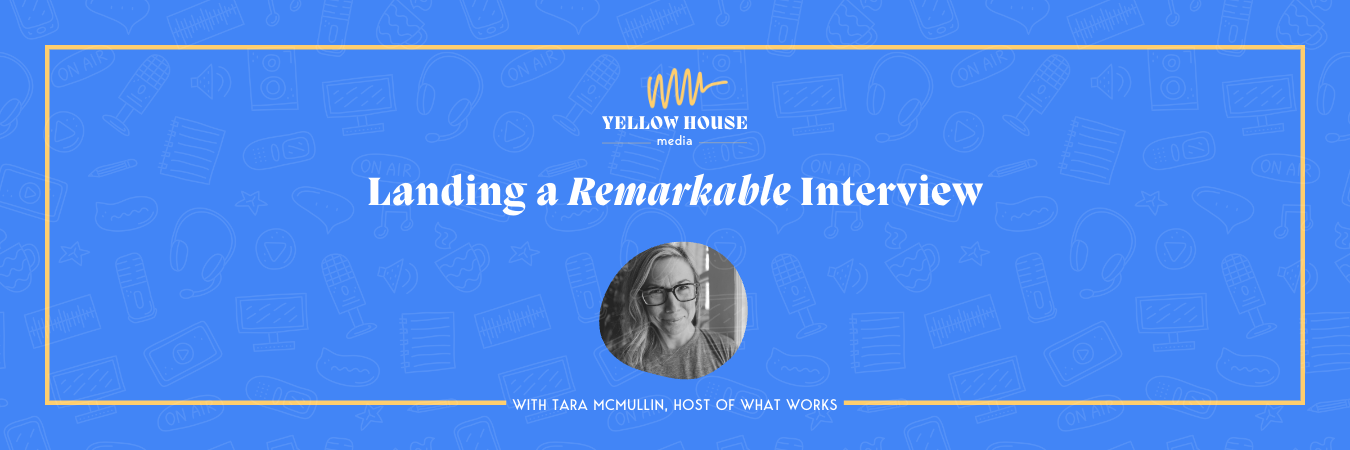Gig Work's Bait and Switch
Gig work and "entrepreneurship" are billed as empowering opportunities—but there are real trade-offs. If full-time jobs are really becoming rarer, we need policy change now.

At the end of 2021, I left the business that I'd been building for more than a decade. I was sick—sicker, perhaps, than I'd been at any other time in my life. And when I say sick, I mean my mental health. I'll spare you the details, but it was bad.
After I left, I took about 4 months to write my book. It was weird to really only have myself to think about—no team, no clients, no groups, no community members. But, the book project took up most of my attention. And then it was written, and I started floating. I floated from one project to another. Some of them paid; most of them didn't.
Every so often, I'd attempt to swim to shore and start building something more permanent again. But then a wave would come and pull me back into the deep.
I'm one of the "lucky" ones.
I have a husband who runs another business we co-founded but gets very little of my time. I have a little wiggle room left for floating until I really need to figure out how I'm going to get back to paying myself regularly. Moving to Substack has helped, for sure. I've taught a few workshops this year. That's been good. I'll be opening enrollment for a certificate program in a week or two. I'm hopeful about that.
When I started working for myself back in 2009 with a new baby and little understanding of the challenges of independent work despite growing up with a single, self-employed mother, I thought working for myself meant empowerment. It meant no longer relying on the man or corporate America. It meant flexibility, unlimited earning potential, complete autonomy, and the chance to truly enjoy my work. And on a good day, independent work does mean all of those things. But they're not all good days.
Over the last 18 months, every so often, I casually look for a j-o-b.
I've even applied for a few.
Did I really want to tether myself to a W-2? No, not especially. But I understood (and still understand) that, as an independent worker, I am tethered to something else. Call it The Hustle. The Grind. The passion paradigm. Call it precarity. Call it, as Manisha Thakor does in her forthcoming book, the Cult of Never Enough. Short of building a mature company that's attained some manner of scale, independent work is always unstable in our present economy—no matter how much money you report on your Schedule C.
Last week, I came across an article on Business Insider examining how full-time jobs that have gone remote are now being turned into low-paying gigs. Journalist Aki Ito writes:
If workers are going to be remote, the thinking seems to go, why not get the cheapest remote workers available? Fewer full-time jobs means fewer costly benefits: healthcare, pensions, on-the-job training, a steady paycheck. In the age of WFH, companies are gig-ifying the American office.
LinkedIn shared this piece in its news sidebar asking: Are full-time jobs obsolete? But at the same time, the LinkedIn roll-up post about Ito's article is titled "Gig workers make gains." These two framings tell us a lot about independent work's bait and switch.
On the one hand, we've seen a significant rise in independent work.
A survey conducted for McKinsey in March/April 2022 shows that independent work is up 33% since 2016. Based on their data and extrapolation, they estimate 58 million Americans are working independently. And since this data is now nearly a year and a half old, and we've seen a large wave of layoffs in the tech sector, my guess is that this estimate is low. If that's "making gains," then so be it.
But on the other hand, it's pretty easy to see that if full-time jobs become the exception rather than the rule for more workers, we have a serious economic problem on our hands. And more than that, we have a significant social problem on our hands.
The same McKinsey survey shows that independent workers "are far more optimistic, both about their own futures and the outlook for the economy, than the average American worker." This is despite the fact that these same workers report worries about the stability of "their employment"—considerably higher than traditionally employed workers. These same workers can't access affordable healthcare through their employers (they don't technically have employers). Nor can they access the meager American safety net—they don't qualify for unemployment insurance or worker's compensation.
Independent work—including gig work, contracting, permalancing, and the entrepreneurialization of jobs—is billed as a form of worker empowerment. Almost by definition, contractors gain control, flexibility, and autonomy of their work. They determine how much money they make and what hours they work.
Except, in practice, this is almost never true.
Remote work and gig-ification have led to a significant uptick in digital surveillance.
More control comes to mean managing yourself to grueling standards. Flexible scheduling soon becomes working all hours in a world where weekends don’t exist. Pay is entirely contingent on the projects or gigs on offer.
None of this is to say that independent work doesn't have its upsides. Of course it does. But with the rate of gig-ification increasing, it's critical to consider the trade-offs. We must also consider who benefits from independent work and who is harmed by it. Gig work's bait and switch is most likely to harm those already on the edge—single parents, immigrants, disabled people, transgender people... really anyone who holds an identity that means they face extra obstacles when it comes to accessing social or financial services. It's also a problem for later career folks who may be looking forward to retirement but end up with limited savings options because of contract work. And yet, these are the same people most likely to end up as contractors and gig workers.
Any time I write about how we work together, I'm keenly aware that you, the reader, could be an independent worker, a small business owner, an entrepreneur, or a traditionally employed worker. That means that you might be impacted by these trends (and the trade-offs) in a variety of ways. You might be impacted as a worker or as an employer—and there's a distinct possibility in this weird economy that you are impacted in both ways. You may work for others on contract and contract with others who do work for you.
To say that I’m troubled by the way independent labor is misappropriated and exploited would be an understatement. I object to the ways independent workers exploit each other in the name of “flexibility” and “entrepreneurship.” And I have even less tolerance of the practice by larger firms with access capital and solid profit margins.
Any time labor misclassification or gig-ification gets brought up, the pushback comes in the form of calls for worker choice.
“My team is all contractors,” some say, “and they want it that way!” Others cite, as I mentioned before, the benefits of flexibility and autonomy. But do workers really prefer contract work for those reasons? Or have they been told they should prefer it for those reasons? Do they really have more flexibility and autonomy? Or are constraints on their time and attention just enforced in new ways?
And, most importantly, do people make a free choice between employment and independent work? Or do they choose independent work because there is no viable alternative?
That's how I ended up an independent worker after all.
When I first became an independent worker, I was a new mom—and married to a man with a union job. We didn't have a lot of money, but we had plenty of stability. I had access to a private safety net of sorts. But I didn't recognize then that, in being self-employed, I lost access to the broader social safety net. Without that knowledge, I couldn't really consider the future implications of the choice to be self-employed. I probably wouldn't have made a different choice, but I could have planned differently.
What I worry about most when I read headlines about full-time jobs going the way of the dodo is that our social safety net is woefully behind the times. Gig-ification doesn't have to be a problem. But it is a serious problem—potentially an existential problem—if we don't update worker protections, unemployment insurance policies, and minimum wage standards to reflect this ongoing change. What would it look like for, say, 50% of the American workforce to have no access to unemployment insurance, no guarantee of even minimum wage, and no recompense for being hurt on the job? I ask because that could easily be our reality in a couple of years.
At a minimum, we need:
Clearer standards (and limitations) when it comes to classifying work as “contract” (and greater enforcement of those standards)
A livable minimum wage for anyone working 30 hours or more in contract work
A truly affordable health insurance option—either universal Medicare or the option to purchase Medicare at below-market rates
Unemployment, worker’s compensation, parental leave, and short-term disability benefits for contract workers
A way to earn or bank paid-time off for contract workers
Simpler ways to file taxes for contract workers
The financial machine—both public and private—of the American economy just isn't designed for independent work.
Yes, there's much to be gained as a contractor, gig worker, or small business owner. But there is also so much to lose. It's long past time for leaders and policymakers to address the gig work bait and switch.
How to Pitch Yourself to Podcasts
If you’re looking to grow your audience, meet new people, land new clients, or “just” generally develop your ideas, getting interviewed on podcasts is a solid strategy. I’ll demystify the process—from finding shows to pitch, to crafting the emails, to preparing to nail your interview—in a brand-new workshop, Wednesday, July 12 at 12:30pm ET/9:30am PT.





I've been self-employed since 1990. The lack of affordable health care has been by far the biggest problem (I'm on Medicare now). Alone among modern economies, the US insists on tying health care to insurance, and of affordable health insurance to working for a corporation or government. I don't want health insurance. I don't want health insurance to even be a thing. Other countries do just fine without it, and they have the health outcomes and life expectancies to prove it. Our tax laws are byzantine. That's another feature, not a bug. I'd go a little further and propose a universal basic income. That would take care of most of the rest of your list.